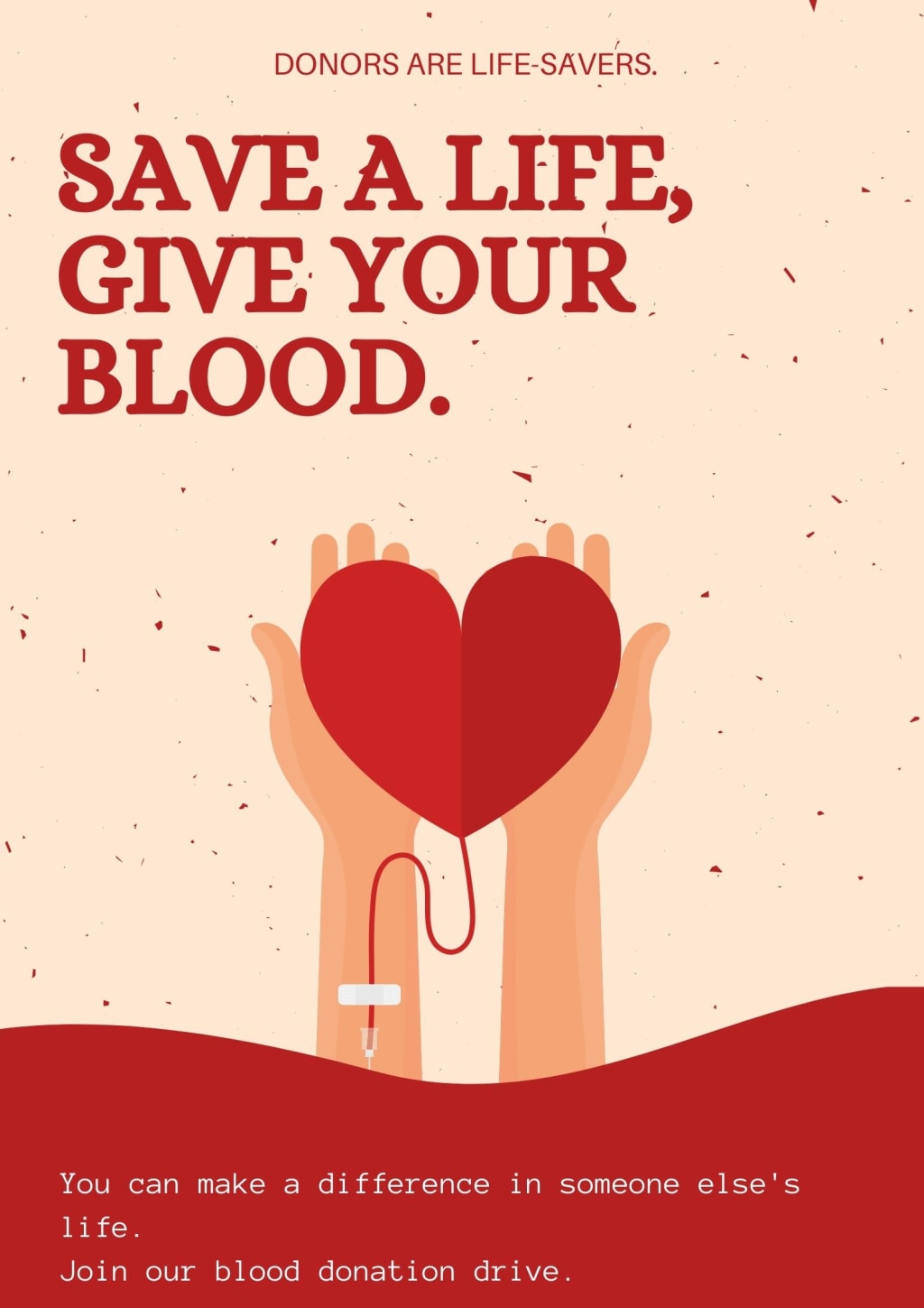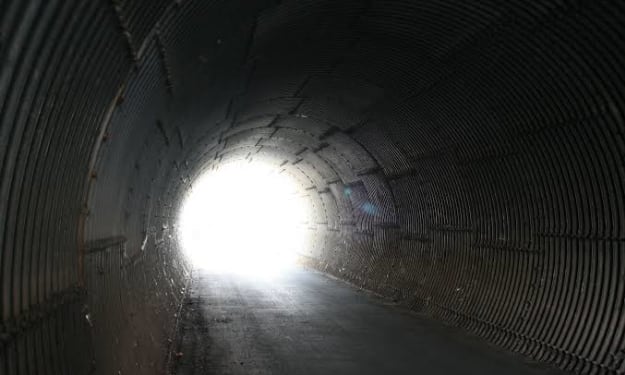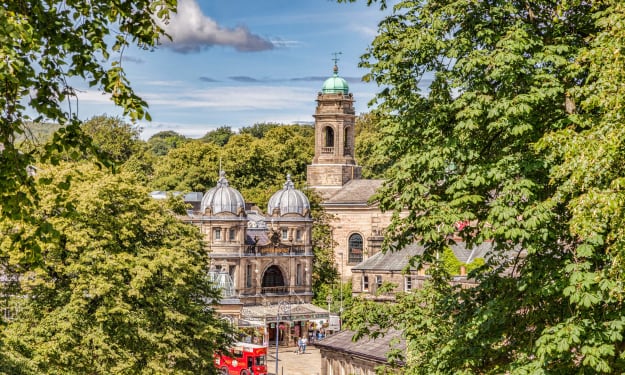
I looked in the mirror. Age had become me. My silver hair pulled tightly back in a bun that grazed my neck. The amber glow in my eyes a little less youthful. I could feel the nerves in my middle.
Why did they want to hear my story?
It’s nothing. I thought. Attempting to reassure myself but the thoughts crept up into my mind like a dark poison. I should call the conference hall. Tell them I had fallen ill. My story locked inside of me for years now.
I closed the hotel room door behind me and tucked a small journal containing my notes into my coat pocket. I took a taxi to the hall, arriving twenty minutes early. I sat in the quiet of the room they made for me, staring at the cup of hot tea, unable to drink from it due to the nerves that filled me—a gentle knock on the door.
“Addie, we’re ready for you,” a woman said on the other side of the door. I could hear a smile in her tone. I stood up, took a deep breath, and walked from the room.
My name is Addie, Addison Brown, to be formal. I was born in 1986. A bastard child of a preacher gone rogue from his beliefs, but only in secret. I was born to a single mother who refused to let me go, much to my father’s dismay. He was hoping my mother would choose to sacrifice me for the sake of his reputation and a chance of a continued relationship with him. I loved one man in my lifetime. A man I lost many years ago. Facing the crowd, I closed my eyes, took one drawn-out deep breath, and spoke.
It was dark. The aged evergreen trees shot up towards the moonlit sky, creating a canopy of darkness. We sat quietly, in a circle, our backs touching. I could feel the heat radiating from the others. The sound of their breathing hitting my ears. The wind whistled through the trees—most of us women, some children too. The wet, cold dirt underneath my bare feet—my shoes slipped off my feet as I ran to this place.
“Mama.” I could hear the faint whisper of a small child.
“Hush, baby, we will be alright.” Her mother responded.
A woman beside me; her name was Mary. We met in the hospital—Mary and me. A living hope for each other. I could feel Mary’s hand next to mine in the dirt. She reached for my fingers grasping at them, searching for comfort. I could see her face in my mind, expressing fear and worry. I had visited that look on her face often over the years. We could hear them searching. The sound of the wet compacted mud underneath their boots. The click of the shotgun shaft in preparation.
Shouting at one another. “Over here! I think I hear them this way.”
My heart was pounding in my chest. The thumping was so pronounced I worried it would be heard. We were the last of them, the last of the Donors—that’s what they called us. All the women in the group had one thing in common, immunity, which is how you became a Donor. A virus had swept the nations, killing many, infecting thousands. The virus made people very ill with external wounds all over their bodies, the sores the size of quarters making it impossible to function, hard to sleep, eat, completely changing the way people looked—no longer human. The sores were internal with many and, in extreme cases, attacked the heart.
Then came the cure. Rulen Pharmaceutical created a vaccine. The only lab to be able to produce the miracle. Thousands fled to the vaccine clinics. Within days their skin was clearing. It was a magical sight.
“Look, darling, I am finally healing,” I remember my husband saying. Standing inside the doorway of the remodeled bathroom of our tiny bungalow home, we had spent years remolding that place. The passion we shared together.
“I am overjoyed for you, my love.”
I was overjoyed. It was a chance at life again. The life we once knew. All we wanted was normalcy. To go back to work, eat dinner out of our house, drive to the beach and push our toes into the warm sand feeling its weight against our feet.
The recipients of the vaccines had a follow-up drug they had to take for it to work properly. Consuming the medication daily and whenever the body demanded it. Just a tiny sniff of the powder would cure reinfection of the virus—a small visible wound—a sniff, and it was gone. It needed to be carried with you in a vile of sorts resembling a silver locket. The locket was the shape of a heart. Clever—its creators—being the virus attacked the heart when it got bad enough. “The heart cure,” they called it, that little locket full of dust. Before long, everyone was wearing the heart lockets, some containing the medication, and some not—some wore it as a symbol of the new world—a sign of healing.
We soon came to learn the new world didn’t mean healing. The world had gone mad. It was 2034—the pandemic had hit the states precisely 14 years ago. When it hit, life stopped, boarded up in our homes until “the heart cure” gave us life again. Then it was discovered, some of us were immune. It was evident who we were because when around the contagious sores, we had none. In late 2030, they discovered the powder was no longer working. People were becoming sick again. Their bodies were adjusting to the dosage, needing more or not responding at all. That’s when Winston Rulen, the founding researcher of Rulen Pharma stumbled across a groundbreaking discovery. The immune ones could cure the sick. The blood of the immune, when pumped into the sick, the sick would become well. Sounds cryptic, right? Because it was.
The trouble was there weren’t many immune and the blood donations from the few left weren’t enough. Not enough to cure the thousands, so they started catching us, trapping us to be Donors.
Some countries attempted to take Rulen to the world court for crimes against humanity, only to be rejected. It was our duty to heal the sick with our bodies, many said. Our responsibility, as donors—to shed our blood. They were killing us though, housing us in abandoned hotels and hospitals— the few Donors that were left. Once we learned of what was happening to the others. Taking so much blood, they became weak and often died. We decided to run. How could we get all of us out? We couldn’t. But tonight, we did. And here we crouch in the dark forest just outside the safe camp we journeyed to find—tired, weak, and still, desperate not to be caught. We were clinging to our lives. We moved slowly through that forest till we came to the camp of the resistance. Sometimes, in the quiet, I can still hear their voices.
“I see it!” a young woman called out, her entire body waving as she pointed ahead.
“Look, the grey stone walls. Up there,” another cried.
We started to run. My feet covered in sores, bleeding, aching in pain. Hope. Those grey cobblestone walls said hope. I could see the tears flowing from the eyes of many around me. Tears in my own eyes, too, as the walls grew taller the closer—my heart about to burst from my chest. I remember reaching my hand up to my neck, grasping the silver locket given to me by my late husband. He took his last breath while he held it in his hand. His “heart cure” necklace, meant to be his freedom, now mine. I grasped it between my fingers to ensure its safety. You see after things got bad; the necklaces became relics. They didn't serve a purpose anymore to the sick. They were now only given by the resistance, as a silent ticket, a ticket to the camps—the safe camps. We all had them—many of them hidden for years in unseen places to keep them from the sight of our captors. Many found meant lives lost once discovered. However, at this moment, we had made it: me, these women, these children.
It is now 2071, and I am one of the last survivors of the destruction that lasted for three decades. A roar of applause filled the room.
We made it. The thought comforted me amid the roaring praise as I walked away. I spoke for all of us—
Freedom is a heart-shaped locket I wear around my neck.
When I close my eyes, I think of him, my late husband. I still see him there, free like me, free from the manufactured virus that destroyed our nations. Freedom, the price we paid—we paid it by shedding our blood, loosing our lives, while holding onto the hope that somewhere in the shadows, we would be free once again.
About the Creator
Bailey Wilson
Writer.






Comments
There are no comments for this story
Be the first to respond and start the conversation.